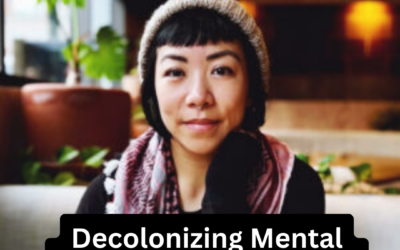Podcast: Play in new window | Download (Duration: 35:54 — 49.3MB)
Subscribe: Apple Podcasts | Spotify | Amazon Music
How To Handle Post Election Tensions: Tips For The Holidays And Beyond
You know the feeling you get when you find out that someone you know and like voted for the “wrong person” this past election? Ann Kelley, Patty Olwell and Sue Marriott discuss post-election tensions as they relate to family, neighbors and co-workers, and give tips on going home for the holidays.
If you are losing your mind post-election…
Applying concepts from IPNB (interpersonal neurobiology), hosts discuss getting a deeper understanding of the very big feelings that have emerged with the surprise election results. While we are all sick of talking and reading about the latest antics of the politicians, we cannot help but keep consuming and trying to process what is happening. We don’t discuss the election itself, but the fallout interpersonally.
Threat response is the big news here; the body and brain/mind perceives danger from the opposite aisle. Understanding the nuance of what you are feeling and why is a key to emotional regulation. We are not advocating for you to just move on, and tamp down your feelings, but instead make suggestions for you to respond more effectively and deliberately.
Rather than strangling someone…
Empathy is easy for some when it’s the “right” group to empathize with but pretty hard when that group is the source of a perceived threat. Threat and the feeling of lack of safety are two tenants that are driving many voters – on both sides of the aisle. Naming it to tame it is a key concept for IPNB self-regulation, so getting more conscious and aware of the range of what is going on inside you will help you begin to direct it as constructively as possible so you can respond rather than simply react.
Whether it’s being able to better understand yourself so you can more effectively and deliberately respond to a call for action, or to stop acting and denigrating one another so as to begin healing the divide, decoding and being conscious of automatic thoughts, righteous indignation, rage and hopelessness are key.
In addition we talk about how to better manage someone else who may be in their own caveman black/white neural response circuit. We try to avoid clichés of all getting along, and address the very real and sharp differences and how to even begin to find common ground (and why some people HATE hearing about a call for common ground).
We hope the discussion will be useful no matter your political orientation to handle post election tensions in your relationships.
RESOURCES:
Additional resources for this episode:
- Jefferey M. Schwartz, M.D. & Rebecca Gladding, M.D.- You are Not Your Brain – The 4-Step Solution for Changing Bad Habits, Ending Unhealthy Thinking and Taking Control of Your Life.
- Ann M. Graybiel & Kyle S. Smith (2014).- How the Brain Makes and Breaks Habits
- Judith Wright -The Soft Addiction Solution: Break Free of the Seemingly Harmless Habits That Keep You From The Life You Want.
- Charles Duhigg (2012) -The Neuroscience of Habits: How They From and How to Change Them
- These and other resources have been collected for you on our Resources page!














